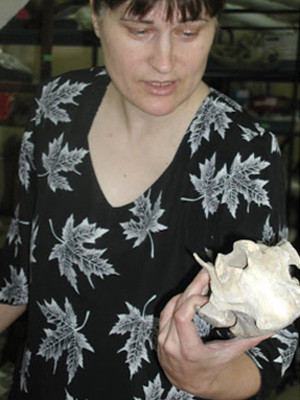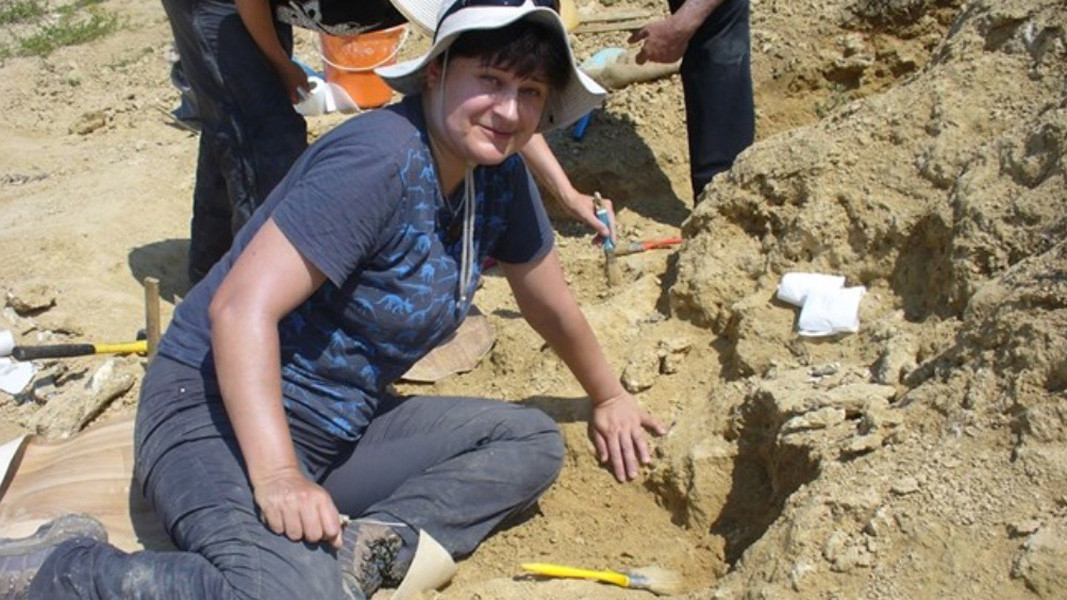In prehistoric times giant reptiles dominated the earth. And despite the fact scientists had long considered present Bulgarian lands as being seabed back then, it has turned out that there was an island –part of the European archipelago, in which various dinosaurs of different sizes and types coexisted.
84 million years ago in the region where now Europe is, there were many islands surrounded by warm sea waters, as evidenced by the remains of turtles, crocodiles and dinosaurs. Scientists call them "island dwarfs," as limited food and space did not allow them to reach the huge sizes of continental species from the Americas.
The first traces of the ancient reptiles on our lands were discovered in 1981 by speleologists near the village of Drashan in Vratsa region, who came across bones that protruded from a cave wall.
 “The first finds were discovered in the Labyrinth Cave and were remains of dinosaurs from the families of the ornithomimosaurs and Hadrosauridae,” says Dr. Latinka Hristova from the National Museum of Natural History at the Bulgarian Academy of Sciences. "In different way their remains became part of the sea. While the ornithomimosaurs died on land, the other animals’ remains were dragged by currents and later sunk fossilized.”
“The first finds were discovered in the Labyrinth Cave and were remains of dinosaurs from the families of the ornithomimosaurs and Hadrosauridae,” says Dr. Latinka Hristova from the National Museum of Natural History at the Bulgarian Academy of Sciences. "In different way their remains became part of the sea. While the ornithomimosaurs died on land, the other animals’ remains were dragged by currents and later sunk fossilized.”
The next discovery related to dinosaurs in our territory was also accidental. In 2012, amateur paleontologist Andrey Tsonkov was hiking in the Tran region to collect fossil invertebrates and in a stream he found to the bone a large reptile. Three years later, an expedition of scientists together with Dr. Latinka Hristova found a deposit of dinosaur remains and started working.
“Unfortunately, the bones discovered near Tran are broken and poorly preserved, and their outer morphology makes it difficult to judge which group they belong to. So far we assume there are at least three groups of dinosaurs,” she says. "Some fragments are from Titanosaurus and others probably belong to carnivorous dinosaurs, called Theropods, who attacked and ate other dinosaurs.”
The dinosaurs inhabited the Earth for 165 million years, but 65 million years ago a series of events led to their perishing. Long-lasting volcanic activity in the Indian subcontinent area rocked the stability of the paleoclimate and a giant meteorite that fell into the Gulf of Mexico finally became the last blow.

Unlike dinosaurs, people can now destroy themselves.
“We are the biggest enemy not only of the whole planet, but of ourselves," Latinka Hristova says. “Organisms do not have the ability to adapt to rapid global warming and we have seized their environment. In addition to that we also pollute a lot – plastic waste was discovered even in the deepest part of the ocean – the Mariana Trench. But unlike the dinosaurs, we have a choice – politicians need to hear the warnings of scientists because in the future it may be too late.”
Although we know about the great reptiles that wandered across Earth, thanks to their remains, some dinosaurs are still among us.
“Not all dinosaurs are dead, so to speak," Dr. Latinka Hristova says. “No matter how strange it sounds, if we compare the mammals and birds, which come from the dinosaur line, we will see that birds as varieties are much more. So, some of the dinosaurs are extinct, while others continue to fly around us. If dinosaurs had not disappeared, there would not have been no human intellect, which unfortunately people often link mostly to destruction,” Dr. Latinka Hristova says.
English: Alexander Markov
Photos: private libraryToday, Bulgaria celebrates the 140th anniversary of the Unification of the Principality of Bulgaria and Eastern Rumelia. The center of the festivities is Plovdiv, where on this day in 1885, after the entry of the Golyamo Konare detachment into the..
In June 1878, after the 10 th Russo-Turkish war in a row, at the Berlin congress, the lands in the Balkans inhabited by Bulgarians were divided up into five. Northern Dobrudja was handed over to Romania. Serbia got the Sanjak of Niš. The lands..
The New Church Year begins on September 1. The month of September is the seventh month of the year according to the Jewish calendar. It is associated with a number of biblical events, which is why it was designated as the beginning of the Church New..
On October 14, the Bulgarian Orthodox church pays homage to Saint Paraskeva, also called St. Petka of Tarnovo and the day is known in Bulgaria as..

+359 2 9336 661
